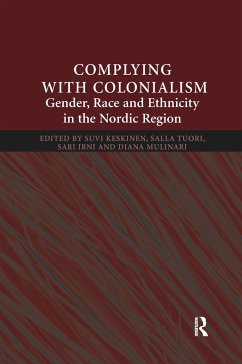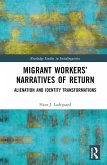Complying with Colonialism presents a complex analysis of the habitual weak regard attributed to the colonial ties of Nordic Countries. It introduces the concept of 'colonial complicity' to explain the diversity through which northern European countries continue to take part in (post)colonial processes. The volume combines a new perspective on the analysis of Europe and colonialism, whilst offering new insights for feminist and postcolonial studies by examining how gender equality is linked to 'European values', thus often European superiority. With an international team of experts ranging from various disciplinary backgrounds, this volume will appeal not only to academics and scholars within postcolonial sociology, social theory, cultural studies, ethnicity, gender and feminist thought, but also cultural geographers, and those working in the fields of welfare, politics and International Relations. Policy makers and governmental researchers will also find this to be an invaluablesource.
'A brilliant exploration of the Nordic states' major inadequacies in facing social divisions, not least their serious limitations in challenging racism and ethnic discrimination. Using diverse and impressive tools, its contributors not only lay bare these often hidden flaws but also explore the heterogeneity of the Nordic countries in a global context and their often problematic responses to social change.' Keith Pringle, Uppsala University, Sweden and London Metropolitan University, UK 'This collection represents an important contribution to feminist postcolonial studies. In exploring the links between colonial imaginaries and current ethnic exclusion, the authors challenge the notion of Nordic exceptionalism and provide a key to understanding intersecting patterns of oppression in a globalised world. Its publication is most welcome.' Paulina de los Reyes, Uppsala University, Sweden '... the anthology covers a wide range of themes from the different countries, and poses a number of important questions that are seldom raised... It is undoubtedly a daunting task to examine histories of colonialism and how they are played out in present contexts, but the anthology manages to cover a broad spectrum of topics... the anthology convincingly argues not only for the importance of exploring the impact of colonial histories, but also for the need to adapt concepts to specific contexts in which axes of power intersect.' Journal of Ethic and Migration Studies









